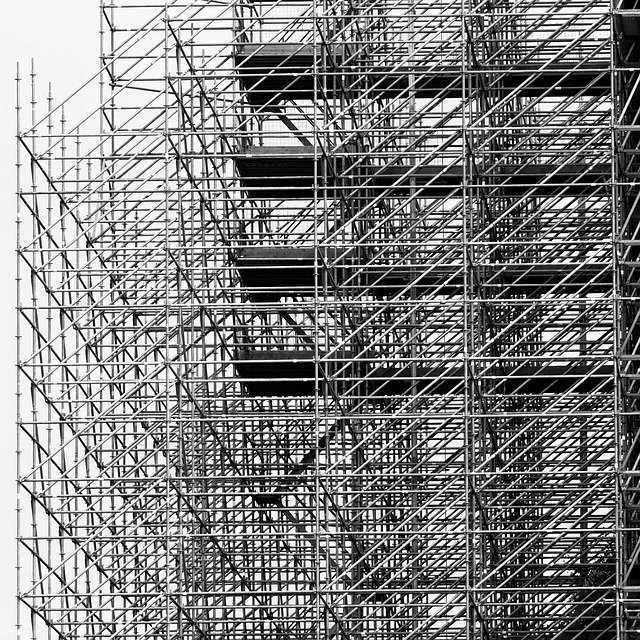Explore Opportunities in Construction Jobs Across Netherlands
In Netherlands, individuals interested in the construction industry can gain insight into the working conditions and environments typical of this field. The construction sector offers a variety of roles, each with its own unique challenges and rewards. Understanding these aspects can help prospective workers make informed career choices and prepare for the demands of the job.

Understanding the Construction Job Landscape in Netherlands
The Dutch construction industry features diverse segments including residential construction, commercial development, civil engineering, and infrastructure maintenance. The industry structure includes large international contractors, mid-sized specialized firms, and smaller local companies. The Netherlands faces particular construction challenges related to water management, sustainable building, and urban density.
The sector has experienced fluctuations in recent years, with periods of growth following economic recovery. Current industry trends show increasing focus on sustainable building practices, digitalization through Building Information Modeling (BIM), and modular construction techniques. These developments are reshaping how construction projects are approached and executed throughout the country.
For those researching the industry, it’s worth noting that Dutch construction has distinctive characteristics including strict building codes, emphasis on innovation, and attention to environmental impact. Construction activities vary significantly by region, with major urban centers like Amsterdam, Rotterdam, and Utrecht typically seeing different development patterns than rural areas.
Common Roles and Qualifications in the Construction Sector
The construction industry encompasses numerous professional pathways requiring different education and skill sets. Technical roles include civil engineers, structural engineers, and architects who typically need university degrees in their respective fields. Skilled trades positions such as carpenters, electricians, plumbers, and masons generally require vocational education and apprenticeships available through MBO programs (secondary vocational education).
Management positions in construction include project managers, site supervisors, and construction managers, often requiring a combination of technical knowledge and business administration skills. Support functions include quantity surveyors, building inspectors, health and safety officers, and administrative staff.
The Dutch construction industry recognizes various professional certifications and qualifications, including VCA safety certification for construction workers and specific technical certifications for specialized work. Many roles require knowledge of relevant Dutch building codes and regulations, while international standards and certifications may also apply for those working on global projects.
Working Conditions and Environment Factors for Construction Roles
Construction environments in the Netherlands vary widely depending on project type and location. Physical demands typically include working at heights, lifting heavy materials, operating machinery, and exposure to different weather conditions throughout the year. Safety standards are strictly regulated through the Working Conditions Act (Arbowet), with companies required to implement comprehensive safety protocols.
Standard working hours in the construction industry generally follow the collective labor agreement (CAO) for construction, typically consisting of 40-hour work weeks. Seasonal variations affect working patterns, with longer hours possible during summer months and reduced activity during winter. Workers often start early in the morning to maximize daylight hours, particularly during shorter winter days.
The industry continues addressing workplace health considerations including noise exposure, dust control, ergonomic challenges, and stress management. Regulatory bodies such as the Dutch Labor Inspectorate (Inspectie SZW) monitor compliance with health and safety regulations to protect worker wellbeing.
Opportunities for Growth and Development in the Construction Sector
The construction industry offers various professional development pathways depending on one’s interests and qualifications. Career progression typically follows patterns from entry-level positions to specialized roles, supervisory positions, and eventually management. Many professionals advance by acquiring additional certifications, specialized knowledge, or management experience.
Knowledge development is supported through continuing education programs, professional associations, and trade organizations. Many companies provide in-house training programs and support external education. The industry increasingly values skills in sustainable building techniques, digital construction technologies, and project management methodologies.
Emerging areas for professional growth include sustainable construction, smart building technologies, modular construction, and construction digitalization. These fields represent expanding niches within the broader construction sector that may offer specialized career paths for those with relevant skills and interests.
Important Industry Information for Construction Professionals
This article provides general information about the construction industry in the Netherlands and does not represent specific job listings or employment opportunities. Those interested in pursuing construction careers should conduct their own research into specific employers, educational requirements, and current market conditions. Industry associations such as Bouwend Nederland and educational institutions offering construction-related programs can provide more targeted information about specific career paths.
The construction industry, like many sectors, experiences economic cycles that affect hiring patterns and project availability. Current market conditions should be researched separately through government statistics offices, industry reports, and employment agencies specializing in construction placements.
Understanding Dutch labor laws, work permits, and language requirements is essential for international professionals considering the sector. While many international companies use English as a working language, Dutch fluency is often required for roles involving client interaction, regulatory compliance, or team supervision.
Conclusion
The Dutch construction industry represents a diverse sector with varied professional pathways and working environments. This overview provides general context about industry segments, common roles, working conditions, and development opportunities for those researching the field. Those interested in specific opportunities should consult specialized construction recruitment agencies, company career pages, and industry associations for current information about educational requirements and market conditions.




